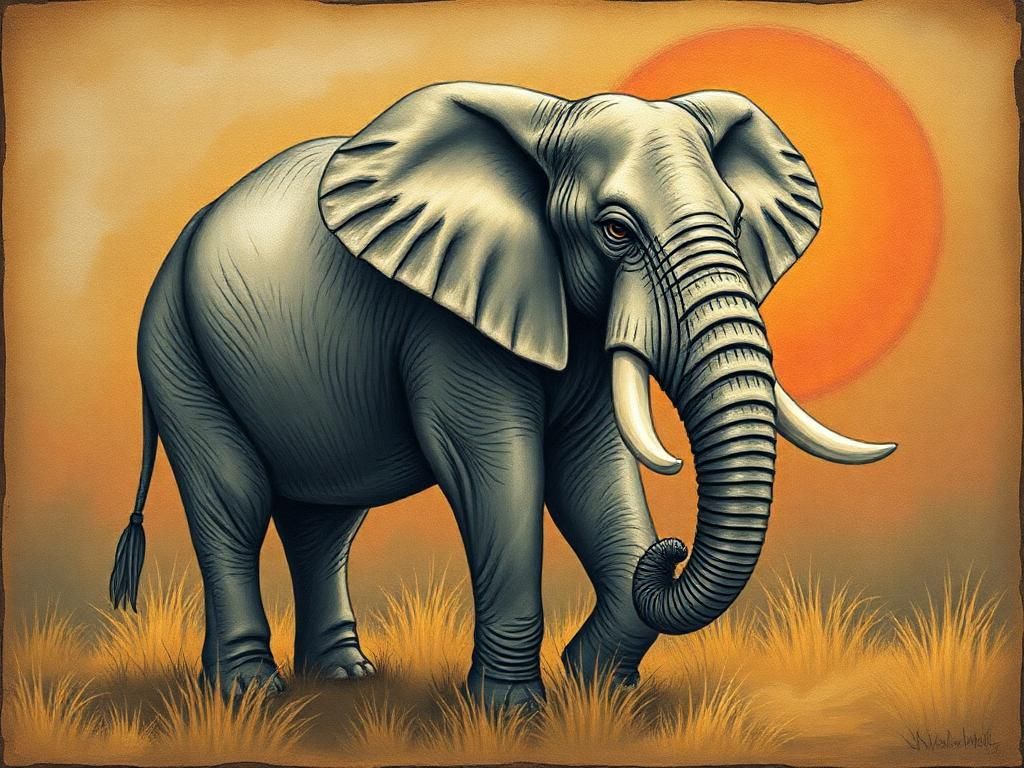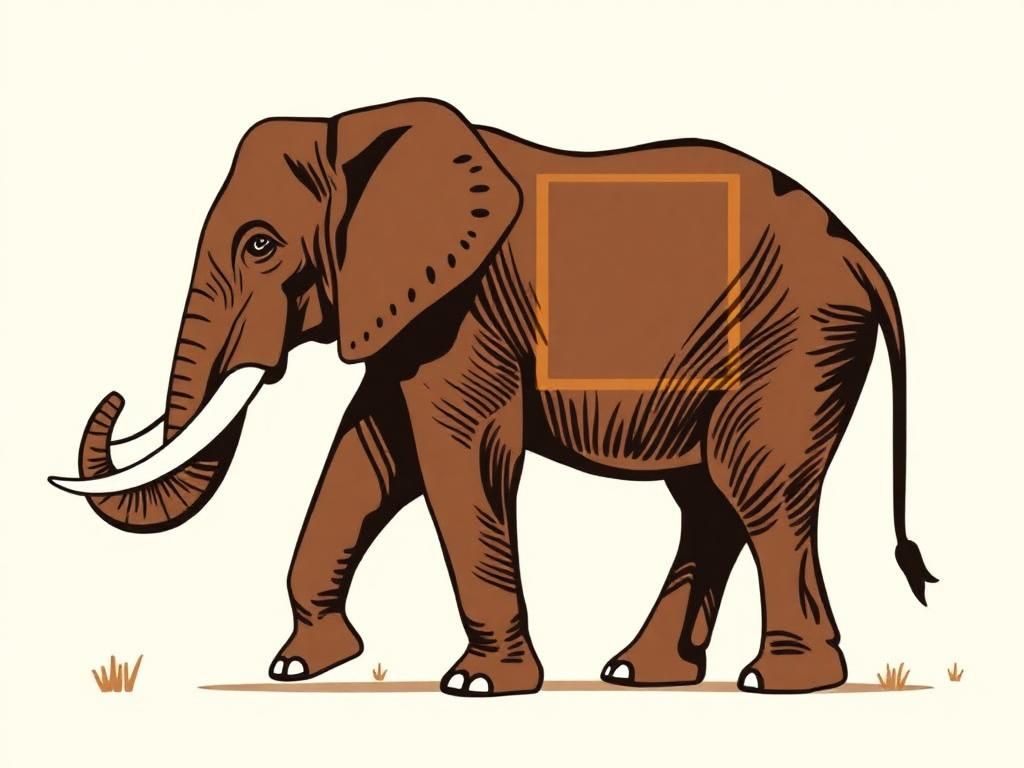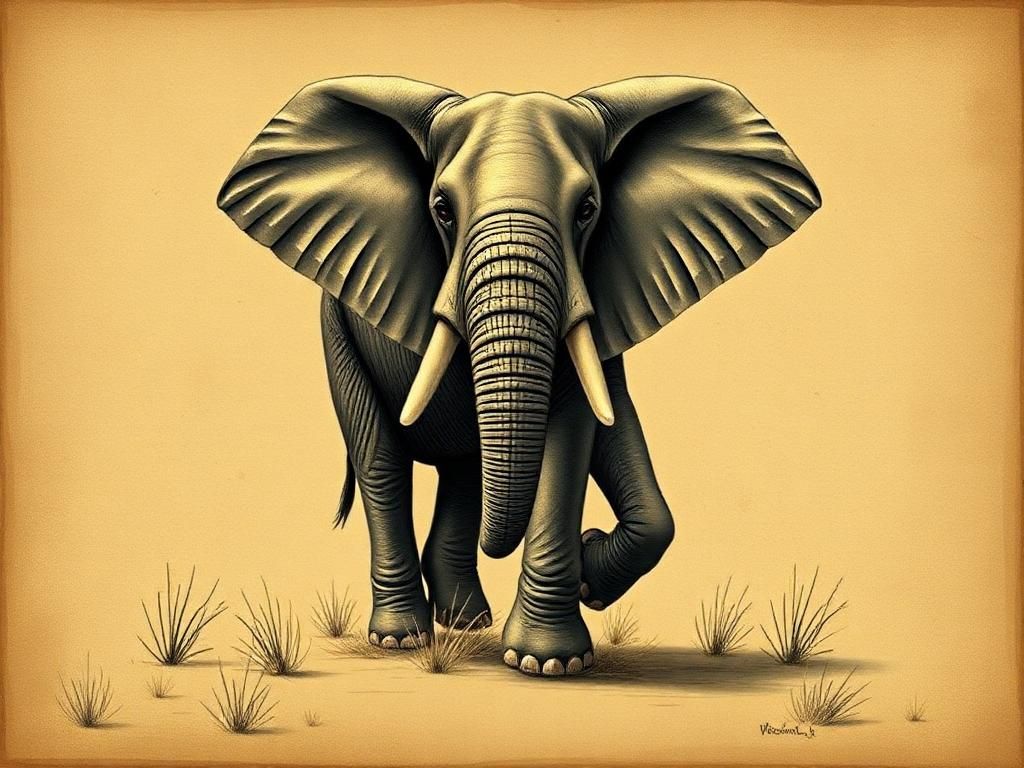Symbolism is a powerful element in human expression, serving as a means to convey profound beliefs, values, and cultural narratives. Among the vast array of symbols interwoven into the tapestry of human history, the elephant holds a particularly esteemed place. Elephants, revered across various cultures, embody a rich tapestry of meanings that span from strength to wisdom, protection, and family loyalty. Understanding what the elephant symbolizes provides insight not only into the natural world but also into the beliefs and values of humanity.
The significance of elephants varies dramatically around the globe. In some cultures, these majestic creatures are seen as divine entities, while in others, they are prized for their strength and intelligence. The understanding of elephant symbolism can deepen our appreciation for their cultural importance and the conservation efforts required to protect these magnificent animals.
Cultural Significance of Elephants
Elephants in Eastern Cultures
In Eastern cultures, elephants are abundant in spiritual stories and legends.
Buddhism: In Buddhist tradition, the white elephant symbolizes purity and is often associated with the birth of the Buddha. According to legend, Queen Maya, the Buddha’s mother, dreamt of a white elephant descending from the heavens, which heralded her pregnancy. This connection imbues the elephant with a divine sense of significance, linking it to enlightenment and spiritual awakening.
Hinduism: In Hindu mythology, the elephant-headed god Ganesha signifies wisdom and prosperity. Revered widely, Ganesha is worshipped at the beginning of new ventures and celebrations, representing not just intelligence but also the removal of obstacles. The sight of elephants in cultural festivals is a manifestation of their esteemed status.
Elephants in Western Cultures
In Western settings, elephants have a different but equally strong set of associations.
American Symbolism: In the United States, the elephant often symbolizes strength and intelligence. Notably, the Republican Party has adopted the elephant as its emblem, representing steadfastness and the ability to weather challenges. This political usage indicates the broader societal values placed upon the elephant.
European Symbolism: Elephants maintain a presence in European literature and art, representing memory and wisdom. Their depiction in famous works often emphasizes these traits, and elephants are frequently cited in proverbs highlighting their incredible memory.
Symbolic Meanings of Elephants
Strength and Power
One of the most apparent qualities of elephants is their immense physical strength and power. Their impressive size and muscular build have historically made them invaluable in warfare and agriculture. Elephants served as war beasts in ancient armies, symbolizing might and dominance on the battlefield. Additionally, their labor was crucial in agricultural settings, showcasing their practical strength.
Wisdom and Memory

Elephants are renowned for their remarkable cognitive abilities and memory span. Research has shown that elephants possess the capability to remember individuals and locations long after initial encounters. This ability contributes to their social structures, as matriarchs lead herds based on their extensive knowledge of the land and resources, reflecting the deep-seated symbolism of wisdom and memory intertwined with these animals.
Loyalty and Family
The social dynamics of elephants are profoundly matriarchal, with strong family bonds at their core. Elephant herds thrive on communal care and loyalty, showcasing a powerful example of family commitment. The matriarch leads her family with wisdom accumulated over years, emphasizing the significance of unity and support among family members. The loyalty inherent in these familial structures reinforces the symbolism of elephants as exemplars of family bonds.
Protection and Guardianship
In many cultures, elephants symbolize protection and guardianship. They are often viewed as protectors in spiritual beliefs, guiding individuals toward safety and strength. The image of an elephant as a guardian is prevalent in various traditions, where they are believed to shield families and communities from misfortune and harm.
Elephants in Art and Literature
Elephants as Symbolic Figures
Elephants feature prominently in art and literature, serving as potent symbols. For example, Salvador Dalí’s “The Elephants” depicts tall, spindly-legged elephants carrying obelisks, symbolizing the fragility of power and memory. Literature often captures the essence of elephants, where their presence serves to convey themes of wisdom, memory, and the complexity of life.
Modern Interpretations
In today’s media landscape, elephants appear in various forms of contemporary art, films, and photography, enriching cultural narratives. For instance, the depiction of elephants in animated films like “Dumbo” portrays them as misunderstood creatures who are also protectors and symbols of courage. Their portrayal in photography often focuses on conservation efforts, aiming to evoke emotional responses toward the urgent need for protection.
Conservation and Symbolism
Elephants as a Symbol for Conservation
As one of Earth’s keystone species, elephants play a critical role in maintaining ecological balance. Their movements through the ecosystem create pathways that other species rely on for travel and resources. As such, the symbolism of elephants has been embraced in conservation efforts, highlighting their role as a symbol of wildlife protection and the necessity of preserving biodiversity.
Elephants in Cultural Heritage

In many indigenous cultures, elephants hold significant meaning and are woven into the fabric of cultural heritage. The loss of elephant habitats due to human encroachment not only threatens the species but also erodes a fundamental part of cultural identity. Protecting elephants is thus crucial for maintaining the spiritual and cultural narratives associated with these majestic creatures.
Personalizing the Symbolism of Elephants
Spiritual Connections to Elephants
For many, the symbolism of elephants extends into the realm of spirituality and dreams. An elephant appearing in dreams might symbolize a need for protection or indicate personal strength. Various cultures integrate rituals involving elephants as blessings, establishing a spiritual bond between humans and these creatures.
Elephant Symbols in Tattoos and Artifacts
The popularity of elephant tattoos reflects a personal connection to their symbolism. Many people choose elephant imagery to represent luck, protection, and strength. Artifacts that feature elephants, such as figurines, are often seen as symbols that bring good luck and serve as reminders of values associated with family and loyalty.
| Symbolic Meaning | Cultural Significance | Examples |
|---|---|---|
| Strength and Power | Evident in warfare and agriculture | Used in ancient battles |
| Wisdom and Memory | Associated with intelligence and memory | Research on cognitive abilities |
| Loyalty and Family | Matriarchal social structures | Communal care within herds |
| Protection and Guardianship | Symbol of spiritual protection | Guardians in various traditions |
FAQ
1. What does the elephant symbolize in different cultures?
Elephants symbolize various meanings across cultures, such as strength, wisdom, and protection.
2. Why are elephants considered wise?
Elephants are known for their remarkable memory and problem-solving skills, contributing to their symbolism of wisdom.
3. What role do elephants play in conservation efforts?
Elephants are keystone species that help maintain ecological balance, making their conservation vital for biodiversity.
4. How are elephants represented in art?
Elephants are depicted in art as symbols of memory and wisdom, often featured in significant works of literature, painting, and sculpture.
5. What is the spiritual significance of elephants?
In many cultures, elephants represent spiritual protection and strength, with rituals often performed to honor them.
6. Why are elephants popular in tattoos?
Elephant tattoos often symbolize luck, protection, and family, attracting those who connect with these meanings.
7. What does the white elephant signify in Buddhism?
In Buddhism, the white elephant symbolizes purity and is particularly associated with the Buddha’s miraculous birth.
8. How do elephants demonstrate loyalty?
Elephants have strong familial bonds and display loyalty by supporting and caring for fellow herd members.
9. Can elephants help promote conservation awareness?
Absolutely! Elephants serve as powerful symbols to highlight the importance of wildlife conservation and ecological health.
10. How does habitat loss affect elephant symbolism?
Habitat loss threatens both the elephant population and the cultural significance they hold in various societies, erasing important narratives.
